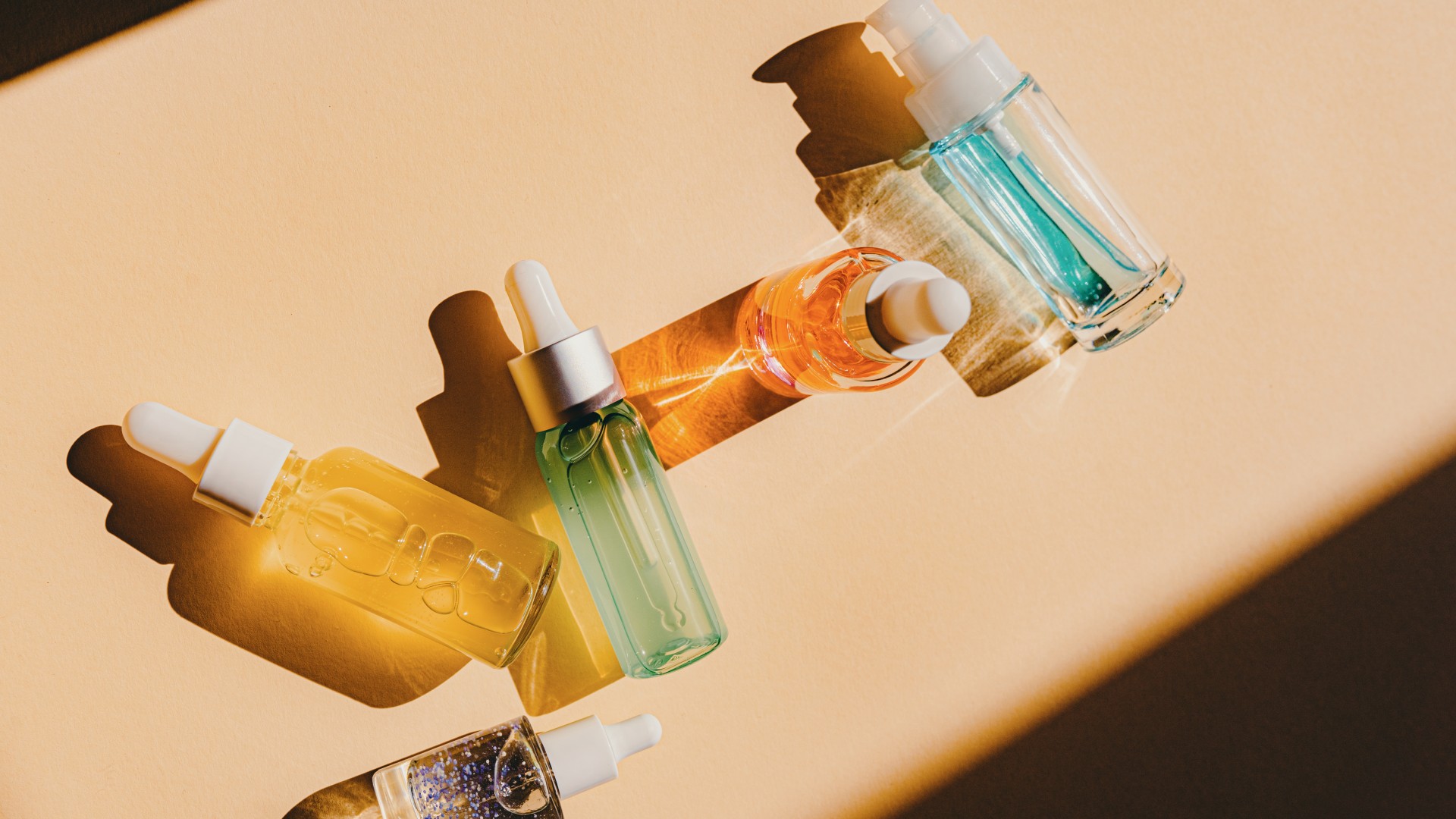Neurocosmetics: the beauty trend blending mental health and skin care
Could a moisturizer really shift your mood?


A free daily email with the biggest news stories of the day – and the best features from TheWeek.com
You are now subscribed
Your newsletter sign-up was successful
Self-care and skin care rituals have long been connected to improving mood and mental health. But what if the products themselves directly affected your emotions? An emerging beauty trend called neurocosmetics may be the answer to taking the relationship between beauty and the mind to a whole new level.
What are neurocosmetics?
The philosophy behind neurocosmetics is rooted in the idea that the "brain and skin are intrinsically linked," and some brands are touting products "formulated to play off that connection," Allure said. Some product descriptions claim that their ingredients can communicate with neurotransmitters in the skin to spark certain emotions or sensations. Neurocosmetics are focused on improving your skin's health by enhancing those sensory reactions by using ingredients that supposedly influence the skin's nervous system, cosmetic chemist Kelly Dobos said to Allure. The active ingredients in neurocosmetics can be "any type of ingredient that affects the nerve receptor: topical ingredients, ingredients that we smell (aka aromatherapy), or ingredients we ingest," cosmetic chemist Ron Robinson said to PopSugar.
Topical products that claim to interact directly with the nervous system are gaining popularity with this trend. CAP Beauty's "serotoner" includes griffonia, a plant that contains the molecule 5-HTP, a precursor to serotonin, to encourage "happier, healthier and more joyful looking skin." Skincare company Selfmade is hawking a three-step "securely attached" kit, which includes a copy of the relationship-psychology book "Attached," a serum that enhances "safety and comfort with self," and a moisturizer that "promotes awareness that past negative experience and emotional states can carry throughout your life."
The Week
Escape your echo chamber. Get the facts behind the news, plus analysis from multiple perspectives.

Sign up for The Week's Free Newsletters
From our morning news briefing to a weekly Good News Newsletter, get the best of The Week delivered directly to your inbox.
From our morning news briefing to a weekly Good News Newsletter, get the best of The Week delivered directly to your inbox.
Stephanie Lee, the CEO and founder of Selfmade, acknowledged that the products alone won't lead to long-lasting psychological changes but argued that they could play a role in "helping young buyers cope with issues of anxiety and low self-worth, especially in the midst of America's teen-mental-health crisis," The Atlantic said. Selfmade's mission is to teach young people how to "use skin as data for what might be happening in our minds," she said to the outlet.
How do experts view the trend?
Neurocosmetics aren't necessarily new, but they have become more trendy lately. "Some of it is riding the coattails of everything having to do with mental health these days," neuroscientist Claudia Aguirre said to Allure. It's possible that just engaging in self-care through your beauty skincare routine can make you feel good about yourself, and that's a good thing; "just know that they're not actually changing your brain," Aguirre said.
Experts say it's best to use so-called neuroboosting products as an "accessory rather than a remedy," Bustle said, "so don't expect topical products to completely shift your state of mind." As humans, we have a baseline for our mood that we eventually return to, psychotherapist Alyssa Mancao explained to the outlet. When seeking out ways to cope with mental health, "it's important for consumers to ask themselves: Is the route that I am taking to feel better sustainable?"
There is also a fine between finding mood-altering in your products and falling victim to the appeal of spending more and more money. "Equating consumerism with happiness may perpetuate a cycle of materialism, whereby fulfillment becomes reliant on external possessions rather than internal satisfaction," psychiatrist Anna Yusim said to Bustle. Enjoying beauty routines without relying on them to uphold your well-being can help you "cultivate a healthy and holistic approach to self-worth and self-care" by "prioritizing practices that nourish the mind, body, and soul beyond improving one's physical appearance."
A free daily email with the biggest news stories of the day – and the best features from TheWeek.com
Experts also argue that "conflating skincare and mental health will only further stigmatize wrinkles, pimples, and other perceived flaws," said The Atlantic. "Any time that we entangle appearance with morality, then people who don't look as good are judged for that in ways that are fundamentally unfair and problematic," Kjerstin Gruys, a sociologist at the University of San Francisco, told the outlet.
Theara Coleman has worked as a staff writer at The Week since September 2022. She frequently writes about technology, education, literature and general news. She was previously a contributing writer and assistant editor at Honeysuckle Magazine, where she covered racial politics and cannabis industry news.
